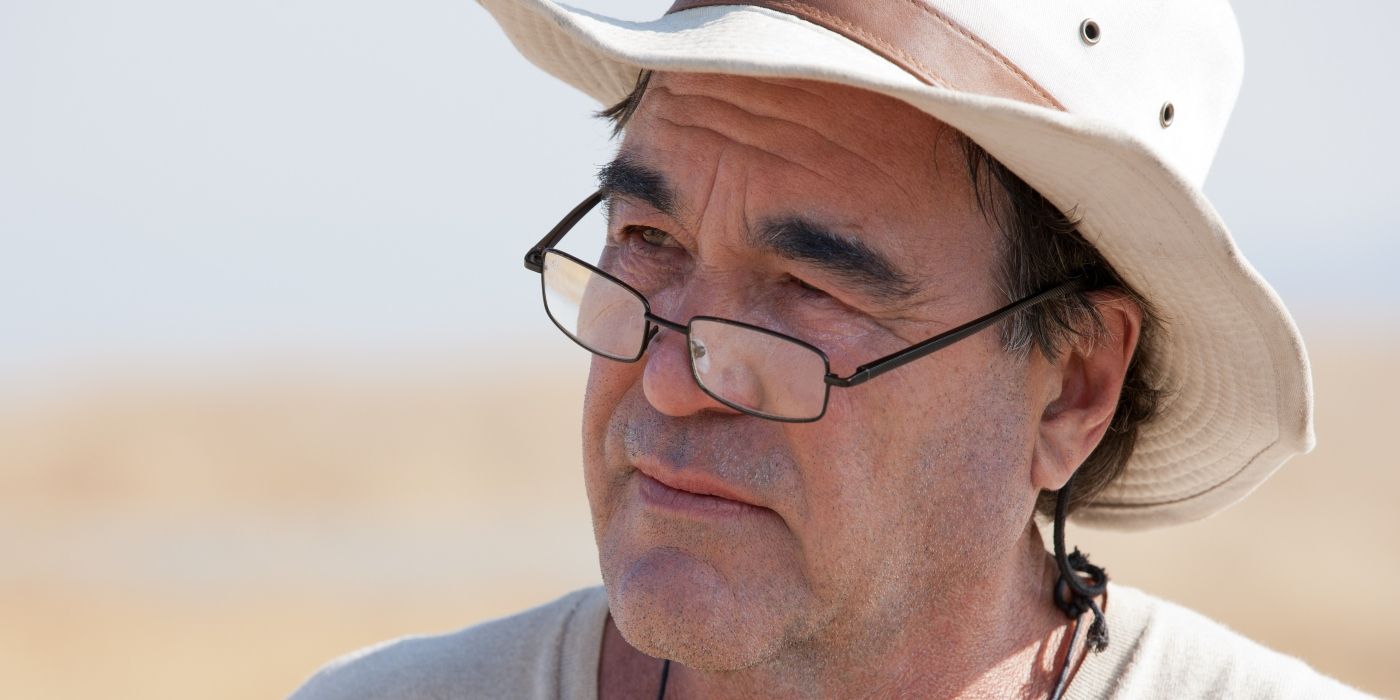The Big Picture
- Oliver Stone’s Martin Luther King Jr. biopic was scrapped due to objections from King’s estate over the screenplay’s portrayal of the civil rights leader.
-
Selma
, released soon after Stone abandoned his project, prominently featured MLK Jr. but focused more on the bigger picture of American history than the man himself. - Stone’s planned film joined a long list of projects that he didn’t bring to fruition, including films about Manuel Noriega and the Vietnam War’s My Lai Massacre.
From JFK to Nixon to Alexander and W., filmmaker Oliver Stone is well-known for tackling consequential and controversial historical figures. In that sense, it’s no surprise that he tried his hand at bringing Martin Luther King Jr.‘s story to the big screen. Announced in 2013, the biopic was set to reunite Stone with Any Given Sunday star Jamie Foxx as the revered civil rights activist, with the filmmaker directing a screenplay written by Kario Salem, and Steven Spielberg producing alongside DreamWorks Pictures and Warner Bros.
Given Stone’s penchant for digging deeper beneath the surface than many filmmakers are willing, often exploring his cinematic subjects with an uncompromising (albeit often melodramatic and speculative) approach to storytelling, it’s not particularly shocking that his planned project was reportedly met with creative differences that ultimately couldn’t be resolved. By early 2014, the film was all but abandoned, with Stone publicly lamenting its unfortunate fate. As a filmmaker who’s no stranger to developing projects that never come to fruition, he trudged on to the next cinematic hurdle. But the notion of Stone helming an unvarnished film about one of the 20th century’s most iconic figures remains an intriguing prospect that leaves much to be desired.
People Were Angry With How Oliver Stone Planned To Portray Martin Luther King Jr.
Coming off of 2012’s crime-thriller Savages, Oliver Stone’s aspiration to make a film about Martin Luther King Jr. made headlines in October 2013. Just three months later, however, news broke that the biopic was essentially dead on arrival. Stone didn’t reluctantly abandon his ambitious project because of common issues having to do with budgetary disputes or scheduling conflicts, but because of the gatekeepers of King’s estate, some of whom allegedly objected to the way in which the film would’ve portrayed the civil rights leader.
According to Stone, he and his collaborators sought to treat King not as a pristine and religious-like figure, but rather a monumentally historical man who, like all of us, had flaws. “The script dealt with issues of adultery, conflicts within the movement, and King’s spiritual transformation into a higher, more radical being,” Stone tweeted upon announcing his departure from the film. “I’m told the estate & the ‘respectable’ black community that guard King’s reputation won’t approve it.”
Characteristically unafraid to speak his mind, Stone further expressed concern that, in the hands of another director, a film about or involving King may stray from a three-dimensional portrayal and into a realm of sentimental reverence. “I fear if ‘they’ ever make it, it’ll be just another commemoration of the March on Washington,” he wrote. For better or worse, Stone’s prediction arguably came to pass in late 2014 upon the arrival of an acclaimed drama.
Ava DuVernay’s Oscar-Winning ‘Selma’ Told Martin Luther King Jr.’s Story
Oliver Stone wasn’t the only filmmaker wanting to get a film involving Martin Luther King Jr. off the ground. Less than a year after his biopic fell apart, Ava DuVernay‘s Selma, chronicling 1965’s protest marches from the titular city to Montgomery, Alabama, as well as King’s integral involvement, was released to critical and commercial success, nabbing an Oscar nomination for Best Picture and winning for Best Original Song. While Selma is moving, well-acted, and skillfully recreates a pivotal event of the civil rights movement, DuVernay’s film is less about MLK Jr. and more about the bigger picture of not-so-distant American history.

Related
From ‘Elvis’ to ‘The Pianist’: 20 Best Biopic Movies of the 21st Century (So Far)
Telling incredible true stories.
As Oliver Stone acknowledged, his planned film’s portrayal of MLK Jr.’s was more along the lines of a character study than a chronological compilation of the leader’s greatest hits, examining King’s morally gray blind spots and shortcomings. According to The Washington Post, King, courtesy of FBI wiretapping, was alleged to have engaged in extramarital affairs and other questionable conduct that, if exposed to the public, would potentially risk undermining his saintly image as one of his or any generation’s most iconic figures. King’s crucial contributions to the advancement of civil rights have been well-documented via archival footage, books, television films, and documentaries, making the idea of an intimate and uncompromising dramatization of what went on behind the scenes all the more tantalizing.
Oliver Stone Has Had Many Movies Not Get Made
As accomplished as Oliver Stone is, the three-time Oscar winner has been involved with numerous projects that were never fully realized. From a Howard Hughes biopic and an adaptation of Marvel Comics’ Elektra: Assassin to a Planet of the Apes reboot and a cinematic account of the CIA’s involvement in America’s war in Afghanistan, he has lent his interest and creative input to a diverse range of projects. But in the case of two particular unmade films, he was just a hair’s breadth away from rolling cameras before things fell apart.

Related
Oliver Stone Made His Own ‘Civil War,’ Except It Really Happened
Before becoming a household name with ‘Platoon,’ the maverick filmmaker explored a brutal civil war through the eyes of a photojournalist.
In May 1992, it was announced Stone wouldn’t be moving forward with a film about Panamanian dictator Manuel Noriega, who was to be played by Al Pacino. After months of research, including location scouting in Central America and a three-hour interview with an imprisoned Noriega, the plug was pulled because of a ballooning budget, logistical complications, and difficulties with the film’s script. “It’s just the nature of the film business,” Stone conceded. A similar situation occurred fifteen years later-albeit on an even shorter notice-when Stone’s film about the Vietnam War’s My Lai Massacre, dubbed Pinkville, was shut down at the 11th hour. Just days away from production, Pinkville was put on the chopping block when the 2007 writers’ strike plagued Hollywood. Though Stone remained optimistic about getting the film made in subsequent years, he ultimately had no such luck.
Recalling the fallout of his failed MLK Jr. biopic in 2021, the filmmaker bluntly acknowledged that “for every film you do, there’s like five abortions.” Given his lengthy history of developing projects that failed to materialize, Stone likely harbors regrets and a certain level of disappointment over certain potential projects. While he has segued to documentaries in recent years, the question regarding whether he’ll return to narrative filmmaking (and in what capacity) remains as intriguing as what may have been had he delivered his MLK Jr. biopic.


















